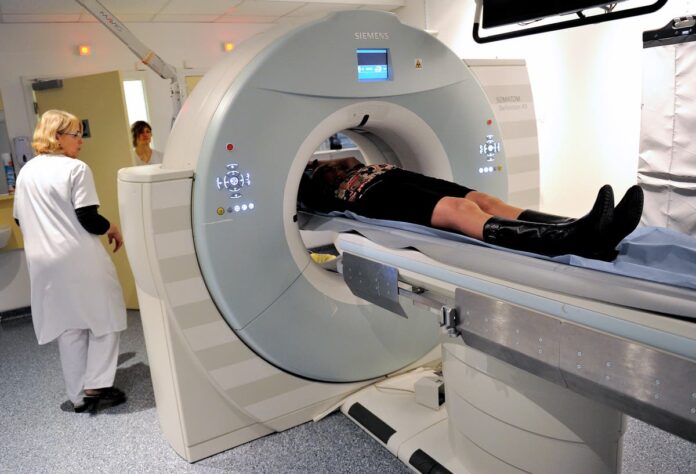The wear and tear of the body due to chronic and lifelong stress may increase the chances of dying from cancer, a new study warns.Cancer is the second leading cause of death in the US, and was responsible for an estimated 1.9 million cases and over 600,000 deaths in 2021 alone.People with high levels of this cumulative wear and tear over the years, known as allostatic load, were 2.4 times more likely to die from cancer than those with low levels of stress, according to the study, published recently in the journal SSM Population Health.’As a response to external stressors, your body releases a stress hormone called cortisol, and then once the stress is over, these levels should go back down,’ said study co-author Justin Xavier Moore, an epidemiologist at the Medical College of Georgia and Georgia Cancer Center. ‘However, if you have chronic, ongoing psychosocial stressors, that never allow you to ‘come down,’ then that can cause wear and tear on your body at a biological level,’ Dr Moore explained.In the study, scientists assessed the data of 41,000 participants from the National Health and Nutrition Examination Survey, or NHANES, which was conducted from 1988 to 2019. They retrospectively calculated the allostatic load of participants based on their body mass index, diastolic and systolic blood pressure, total cholesterol, levels of hemoglobin, albumin, creatinine, and C-reactive protein – a measure of inflammation.Researchers defined high allostatic load as having a score greater than 3.They then compared data from the National Death Index – maintained by the National Center for Health Statistics and the Centers for Disease Control and Prevention – with the participants to identify who had died from cancer and when.’Examining the association of allostatic load on cancer outcomes, and whether these associations vary by race may give insight to novel approaches in mitigating cancer disparities,’ researchers explained in the study.Scientists found that those with a high allostatic load were 2.4 times more likely to die from cancer than those with low allostatic loads without adjusting for any potential confounders like age, social demographics like race and sex, poverty to income ratio, and educational level.When controlling for age, researchers found that people with a high allostatic load still had a 28 per cent increased risk of dying from cancer.’That means that if you were to have two people of the same age if one of those people had a high allostatic load, they are 28 per cent more likely to die from cancer,’ Dr Moore explained.’Even if you take race out, the bottom line is that the environments in which we live, work, and play, where you are rewarded for working more and sometimes seen as weak for taking time for yourself, is conducive to high stress which in turn may lead to cancer development and increased morbidity and mortality,’ he added.When adjusting for other factors including sex and race and educational level, high allostatic load led to a 21 per cent increase, and further adjusting for other risk factors like whether participants smoked, previously had a heart attack, or been previously diagnosed with cancer or congestive heart failure, led to a 14 per cent increase, scientists noted.Researchers call for future studies to delineate the link between chronic stress and death from cancer to better understand the causal mechanism involved.
Chronic stress can increase risk of dying from cancer, study finds
Sourceindependent.co.uk
RELATED ARTICLES


